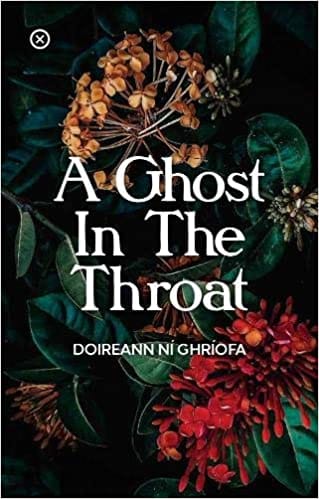“A Ghost in the Throat” by Doireann Ni Ghriofa

A Ghost In The Throat by Doireann Ni Ghriofa is an extraordinary book. It is the Irish poet’s debut as a prose writer. Some call it auto fiction. Some a memoir. I doubt it can be classified as anything except what it proclaims itself to be, “a female text”. It defies being boxed in. It defies boundaries. It evolves. It is unashamed to detail the domesticity involved in bringing up children. The peace and calmth she finds in picking up the mess of toys or even having bathed, scrubbed and neatly combed babies. It is with equal frankness that she talks about her body, breastfeeding the kids or expressing milk for a bank of premature babies. Or even talking about her sexuality and her desires as if it is the perfectly normal thing to do and does not deserve to be shushed for being unladylike behaviour.
It is graceful yet intense, it is elegant and yet brutal with its single-minded focus on telling the unwritten story of the 18th century Irish noble woman Eibhlin Dubh Ni Chonaill who is credited with composing the greatest poem of its century from.Brirain or Ireland — Caoineadh Airt Ui Laoghaire. Eibhlin composed this keen for her murdered husband , Art O Laoghaire, and after drinking some of his blood. Art was a member of the Gaelic gentry of County Kerry and had been killed at the hands of the Anglo-Irish official Abraham Morris. If I have understood correctly, the caoineadh or lament is usually sung by women and passed on from generation to generation, rarely written down, but transforms ever so slightly depending upon the singer/storyteller.
A Ghost in the Throat is about Ghriofa’s research and putting together Eibhlin’s story. All the while, Ghriofa was mother to an ever expanding brood. The grief is searing when she describes the premature birth of her fourth child, her only daughter, and the days they spent together in the hospital. It is the channeling that deep and utter sadness of Eibhlin’s experience that also seems to well up from an unexpected depth within Ghriofa. It shows in her writing. This is one particular moment in the book that despite it being a slim chapter, the sharpness and clarity with which it is written, makes it an unforgettable incident. It sears itself in the reader’s mind just as good poetry always does. Ghriofa brings the poet’s skill of using minimal number of words to convey layers and layers of meaning to this prose text.
Ghriofa has also translated the “Caoineadh Airt Ui Laoghaire” and it is included in the book. The act of translation is also powerful as it makes the translator intimately familiar with the writer. It is a kind of closeness that rubs itself onto the translator possibly in more ways than one. In all likelihood, Ghriofa understood Eibhlin better than anyone else has so far. It is not just the very act of displaying her intense grief by commemorating her recently deceased husband in a poem but as women, mothers, poets, separated across centuries too. These are points of commonality amongst the two women. Sadly, there is little trace of Eibhlin’s existence and this is exactly what Ghriofa hopes to rescue and create a patchwork of. And she does a phenomenal job of it.
The Ghost in the Throat won the best Irish Book of the Year 2020 Award and was on the Rathbones Prize 2020 shortlist. It will probably make its way to more award lists but for now, read it.
24 March 2021

No Comments